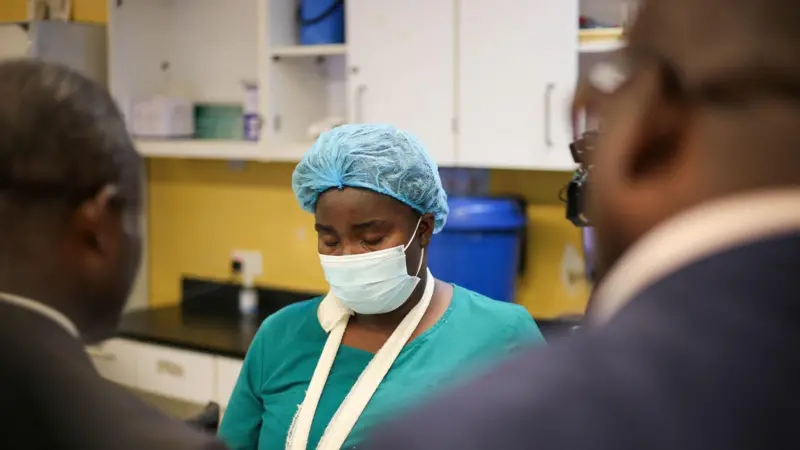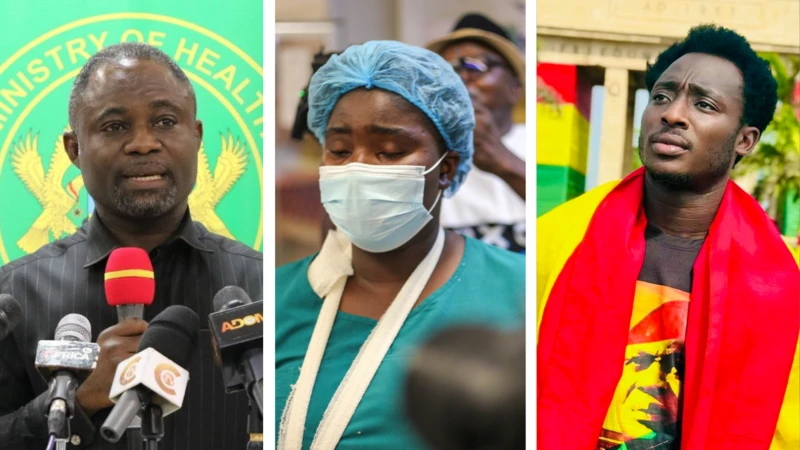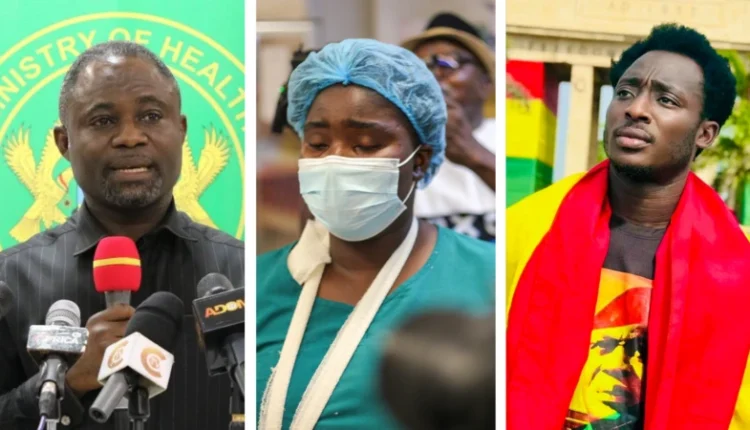Investigating Ridge Hospital Assault
Ridge Hospital-An investigative committee has presented its findings following last week’s alleged assault of a nurse at the Greater Accra Regional Hospital (Ridge).

Consequently, the report highlights significant gaps in security, staffing, and equipment while confirming the nurse’s medical records showed no fracture or bone dislocation.
Presenting the Committee’s Medical Findings On Ridge Hospital Assault
Firstly, the committee chairman, Dr. Lawrence Ofori-Boadu, presented the report in Accra on Wednesday, August 27, 2025. He stated that the nurse, Ms. Rejoice Tsotso Bortei, reported her injuries a day after the incident.

According to medical records from the Greater Accra Regional Hospital, she did not suffer any fracture to her left wrist or a dislocation of her right shoulder joint. Following the assessment, medical staff treated her with pain relief, placed her on bed rest, and provided crucial psychological support.
Identifying Critical Systemic Challenges
However, the investigation extended beyond the immediate incident to uncover deep-rooted, systemic issues within the emergency unit. The committee identified the following critical issues:
1. Inadequate Security Protocols
Security at the emergency unit was grossly inadequate. Specifically, only one private security officer was deployed on a 12-hour shift despite consistently heavy human traffic. Furthermore, the police post on the hospital premises was located too far from the emergency department, which forced staff to rely on the distant Adenta Police Command for assistance.
2. Severe Staffing Shortages
The unit suffered from a severe lack of personnel. For instance, in August, the emergency unit operated with only one doctor per shift and one specialist per day. Although seven doctors and two specialists were permanently assigned to the unit, this was insufficient. Similarly, of the 88 nurses routinely posted to the department, only 54 were present at their posts while 34 had left for various reasons.
3. Faulty Essential Equipment
Moreover, key imaging equipment, including X-ray, CT scan, and MRI machines, was faulty. This breakdown of diagnostic machines caused significant treatment delays and often led to unnecessary patient referrals outside the hospital.
Key Recommendations for Improvement
Therefore, the committee proposed a robust set of recommendations to address these failures and prevent future incidents. Their key proposals include:

-
To enhance security, they recommended deploying more security personnel and ensuring a regular police presence at the emergency unit, especially at night and on weekends.
-
Additionally, expanding CCTV coverage across all care areas would improve monitoring and safety.
-
To resolve staffing crises, recruiting more doctors, nurses, and client service officers is essential for supporting overwhelmed emergency services.
-
Concurrently, repairing and retooling all faulty diagnostic equipment is a critical priority.
-
On a broader level, establishing additional secondary-level hospitals in the region would help ease the overwhelming pressure on Ridge Hospital.
-
Finally, intensifying public education on the role and limits of emergency services could help reduce confrontations.
Conclusion: A Path Forward-Ridge Hospital Assault
Dr. Ofori-Boadu emphasized that implementing these measures is vital to improving emergency care, preventing future incidents, and maintaining public trust in essential health services. In summary, addressing these security, staffing, and equipment challenges is the first step toward transforming emergency healthcare delivery at the facility.



